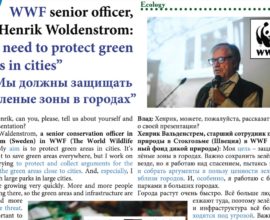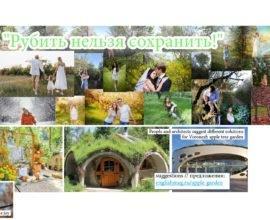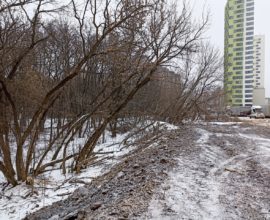Экология и умная переработка отходов — «Практическое руководство»
Ecology & Smart Recycling
Topics of Ecology and Recycling are always timely, but nowadays it gets more and more attention from the ordinary people and of course from the media, as well. Just imagine, how many kilos of garbage we throw away every day? Plastic bottles, carton packets, plastic bags, food leftovers, read papers, used batteries, you don’t need to go too far — just look into your garbage bin. In Russia, about 90% people throw it in a dustbin instead of recycling it separately… Only thinking about nature now, we can have a better tomorrow!
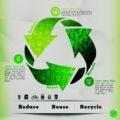
*Темы экологии и переработки отходов всегда актуальны, но в настоящее время они привлекают все больше внимания со стороны простых людей и, конечно, средств массовой информации. Только представьте, сколько килограммов мусора мы выбрасываем каждый день? Пластиковые бутылки, картонные пакеты, полиэтиленовые пакеты, остатки еды, прочитанные бумаги, использованные батарейки — вам не нужно заходить слишком далеко — просто загляните в свой мусорный бак. В России около 90% людей выбрасывают его в мусорную корзину вместо того, чтобы перерабатывать отдельно… Только думая о природе сейчас, мы можем жить в лучшем будущем! Вторичная переработка сырья может спасти планету.
ECOLOGY AND SMART RECYCLING
Have you ever seen coloured tanks for separate collection of garbage? The colour of the tanks [1], the number and filling [2] can be different, it is important that their contents are recycled. From such waste [3] new things are created.
Separate waste collection is a system in which waste is divided into types so that they can be recycled [4] and created new things, and not just discarded[5]. With such a system, our city, our country is less polluted with garbage, and for the production of things you do not need to spend resources: oil, timber, aluminium.
In Russia, many large cities already have plants for processing plastics, waste paper, metal and other useful garbage. According to all businessmen, they lack only one thing: recyclable materials [6]. With the advent [7] of a separate collection system, they are ready to increase production.
What can be done?
Greenpeace launched a new project [8],
irecycle.ru «One Million for Separate Collection.» They want to collect a million signatures [9] under an appeal [10] to mayors [11] of cities and regional governors [12] with the requirement [13] to make mandatory [14] the installation of tanks for separate waste collection in each yard.
Speaking of a separate waste collection, we mean solving a specific problem that concerns each of us, our home, yard, city. After all, a separate collection is primarily the health of our children, who will not have to inhale the air poisoned [15] by incineration plants [16]. If you are ready to start to collect garbage separately today, you can find the addresses of recycling points on recyclemap.ru.
Compost, Recycling, or Trash
Still confused about what waste goes in which bin? Let’s figure out!
Composting
Some waste goes into composting, it is a biodegradable [17], organic waste, meaning it can be broken down. It is sent to a location where it is then decomposed [18], recycled into nutrient-rich soil [19] that can be used to fertilize plants and crops [20]. Basically, a continuous cycle that puts nothing to waste.
Compostable Items:
— Fruits, vegetables
— Fish products
— Pasta, bread,
cereals, rice
— Houseplants, in- cluding soil
— Some paper
— Coffee filters, tea bags, looseleaf tea
Many items can be thrown into the compost bin. For the most part, almost any food (except cooked, meat, and dairy) is compostable.
In the USA there is an organics and food waste hauling company dedicated to diverting food waste from the landfill [21] to local composting facilities. Their program is designed to reduce your waste bill, as well as your environmental footprint, so you can save money and help save the planet.
Food scraps make up 40 % of the waste we throw away. Composting at home allows closing the waste loop. Grow food and not landfills.
And what about Russia.
In our country, there is no similar company for collecting food waste in cities. Some people arrange compost in the apartments using special equipment.
Recycling
Like composting, recycling turns waste into more recyclable, useful material. From one item to the next, this process helps reduce the number of overall waste in the world. As the saying goes: “Reduce, Reuse, Recycle”.
What Can Be Recycled?
Metals
Paper
Aluminum cans, metal cans
Bottles and jars
Glass bottles and jars, plastic bottles and jugs
Electronic Devices (Devices have a special recycling process, and should be recycled separately from regular waste)
Trash
Hopefully, after recycling and composting, there won’t be much to throw away. Remember, any non-biodegradable and non-recyclable waste goes to trash, which then goes to landfills.
Just knowing a little more about composting, recycling, and trash can make you a better-informed citizen. It’s a world issue [22] that could become a bigger problem in the future. And as statistics have shown, waste issues can be avoided. So start doing these things now if you think it’s important.
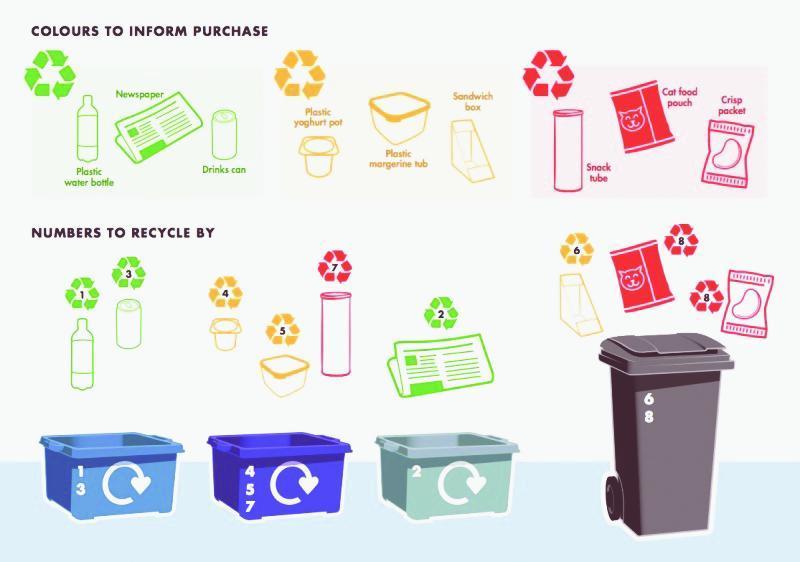
Active Recycling vocabulary:
1. tank [tæŋk] бак, контейнер
2. filling [‘fɪlɪŋ] наполнение
3. waste [weɪst] отходы
4. recycled [ˌriː’saɪk(ə)ld] переработаны
5. discarded [‘dɪskɑːdid] выброшенный
6. recyclable [ˌriː’saɪkləbl] materials — перерабатываемые материалы
7. advent [‘ædvənt] наступление, приход
8. launched [‘lɔːnʧid] a new project — запустил новый проект
9. signatures [‘sɪgnəʧəz] подписи
10. appeal [ə’piːl] обращение
11. mayor [meɪə] мэр
12. governor [‘gʌv(ə)nəz] губернатор
13. requirement [rɪ’kwaɪəmənt] требование
14. mandatory [‘mændət(ə)rɪ] обязательный
15. to inhale [ɪn’heɪl] the air poisoned — вдыхать отравленный воздух
16. incineration [ɪnˌsɪn(ə)’reɪʃ(ə)n] plants — мусоросжигательные заводы
17. biodegradable [ˌbaɪəudɪ’greɪdəbəl] портящиеся под действием микроорганизмов
18. decomposed [ˌdiːkəm’pəuzd] подвергшийся разложению
19. nutrient-rich soil [sɔɪl] богатая питательными веществами почва
20. fertilize [ˈfəːtɪlʌɪz] plants and crops [krɒps] удобрять растения и посевы
21. landfill [ˈlan(d)fɪl] мусорная свалка
22. world issue [ˈɪʃuː] мировая проблема


